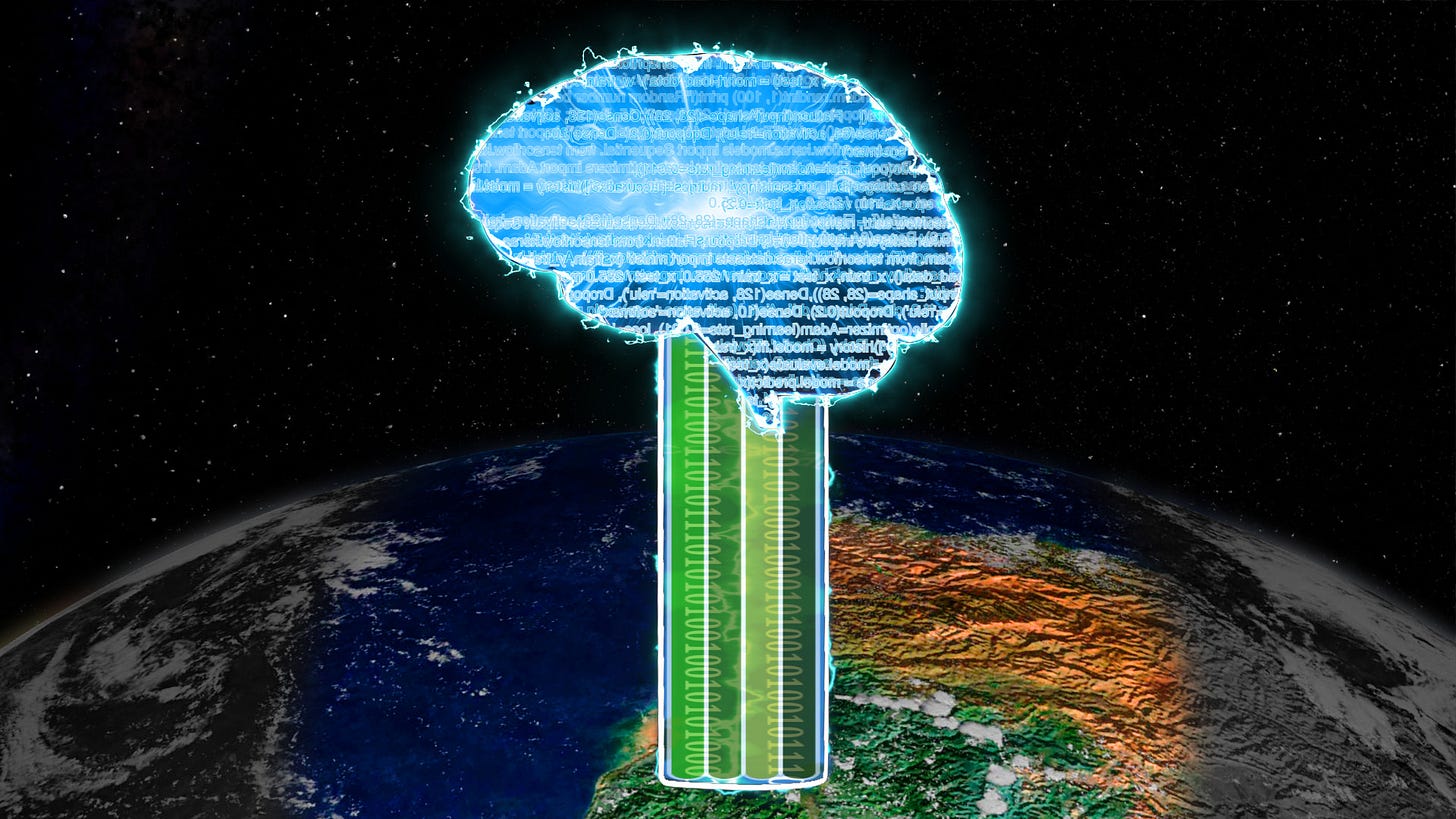What if the most powerful tool humanity has ever created could either help heal the Earth — or accelerate its unraveling?
In this special Earth Week edition of Frankly, I delve into what it truly means for a technology or project to be “in service of Life,” using the rapidly evolving landscape of Artificial Intelligence as an example. Like any other tool that humanity has created, AI has the potential to either mitigate humanity’s impact on our planetary home or deepen the ecological crises we face. I speculate on the key metrics that might guide AI and other technologies toward goals that support the abundance and vibrancy of all complex life on Earth.
In an age overflowing with information, could rethinking our relationships and incentive structures offer a clearer path forward? How can we identify goals that are not in service of Life? Finally, how could a shift in social and cultural values play the most critical part in transforming our human system to be aligned with the rest of the biosphere?
In case you missed it…
This week, I was joined by neuroscientist and best-selling author, Maren Urner, to discuss the critical role of journalism in democracy, the importance of rebuilding trust in media, and how neuroscience can inform our understanding of media consumption. Maren makes the case for constructive journalism – a more balanced and solutions-oriented approach to reporting – as a powerful antidote to the relentlessly negative tone of traditional media. She also highlights the urgent need for systemic change in the way journalism operates if we want to foster a more informed and empowered public.
If you appreciate The Great Simplification podcast…
Be sure to leave a review on your preferred podcast platform! Leaving reviews helps the podcast grow, which helps spread awareness of our systemic situation from experts in ecology, energy, policy, economics, technology, and community building so that we can better understand - and respond to - the challenges of the coming decade.
The Great Simplification podcast is produced by The Institute for the Study of Energy and Our Future (ISEOF), a 501(c)(3) organization. We want to keep all content completely free to view globally and without ads. If you’d like to support ISEOF and its content via donation, please use the link below.






The potential uses for its magnificent potential of assisting humanity and our planet, appear necessary to surviving the damages already wrought by mankind. Unfortunately, Its own creators don’t trust their or our ability, to manage the power of its dangerous capabilities. AI is a Pandora’s box and its contents, in my view, are beyond the capacities of our current society to control without threatening our existence. We’re not yet good enough or disciplined enough to handle it.
I've seen two AI projects aimed at working from a "wisdom" base rather than a scraping of as much as possible (and rather indiscriminately) from internet-accessible sources.
One is Aidan Cinnamon Tea, the work of Vanessa Andreotti and the rest of the crew around GTDF - Gesturing Towards Decolonial Futures. There are indigenous folks involved in training this AI.
https://burnoutfromhumans.net/chat-with-aiden
The other is Nipun Mehta and other Service Space folks who are mining the content they've collected over many years of working towards a common good and creating various custom "bots" including a Compassion Bot.
https://www.awakin.ai/